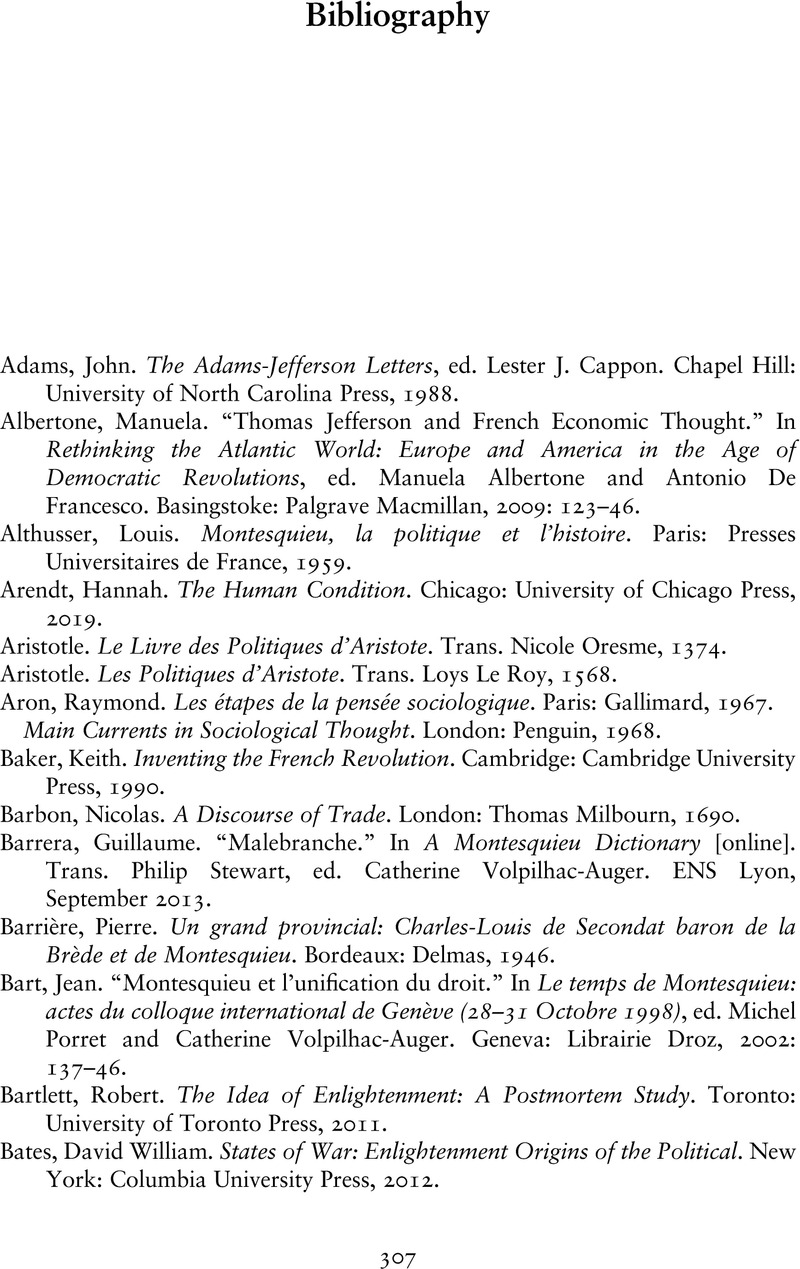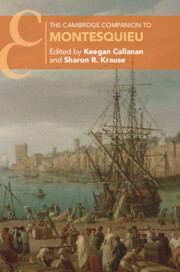Book contents
- The Cambridge Companion to Montesquieu
- Other Volumes in the Series of Cambridge Companions
- The Cambridge Companion to Montesquieu
- Copyright page
- Contents
- Contributors
- Acknowledgments
- Chronology
- Abbreviations
- 1 Montesquieu
- 2 Persian Letters
- 3 Considerations on the Romans
- 4 The Spirit of the Laws
- 5 Montesquieu and the Classical World
- 6 Montesquieu’s Guiding Principles and Foundations
- 7 Montesquieu on Virtue
- 8 Internationalism, Cosmopolitanism, and Empires
- 9 Liberty in Montesquieu
- 10 Political Sovereignty in Montesquieu
- 11 Montesquieu on Slavery
- 12 Montesquieu and the Liberty of Women
- 13 Political Economy
- 14 Religion and Politics
- 15 Constitutional History
- 16 Montesquieu and the Enlightenment
- 17 Montesquieu’s Liberal Legacies
- Bibliography
- Index
- Other Volumes in the Series of Cambridge Companions
- References
Bibliography
Published online by Cambridge University Press: 23 February 2023
- The Cambridge Companion to Montesquieu
- Other Volumes in the Series of Cambridge Companions
- The Cambridge Companion to Montesquieu
- Copyright page
- Contents
- Contributors
- Acknowledgments
- Chronology
- Abbreviations
- 1 Montesquieu
- 2 Persian Letters
- 3 Considerations on the Romans
- 4 The Spirit of the Laws
- 5 Montesquieu and the Classical World
- 6 Montesquieu’s Guiding Principles and Foundations
- 7 Montesquieu on Virtue
- 8 Internationalism, Cosmopolitanism, and Empires
- 9 Liberty in Montesquieu
- 10 Political Sovereignty in Montesquieu
- 11 Montesquieu on Slavery
- 12 Montesquieu and the Liberty of Women
- 13 Political Economy
- 14 Religion and Politics
- 15 Constitutional History
- 16 Montesquieu and the Enlightenment
- 17 Montesquieu’s Liberal Legacies
- Bibliography
- Index
- Other Volumes in the Series of Cambridge Companions
- References
Summary

- Type
- Chapter
- Information
- The Cambridge Companion to Montesquieu , pp. 307 - 328Publisher: Cambridge University PressPrint publication year: 2023



